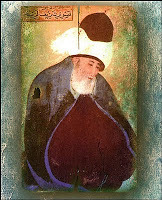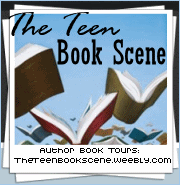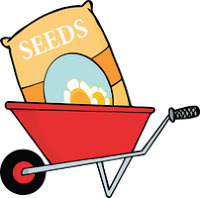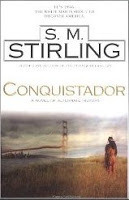Tom Kepler's Blog, page 44
May 11, 2011
Famous Rejection Letters: three reasons to keep on writing
 I'm gearing up to submit my fantasy novel The Stone Dragon to agents and editors again, after having spent considerable time developing an online platform and publishing an earlier novel, Love Ya Like a Sister.
I'm gearing up to submit my fantasy novel The Stone Dragon to agents and editors again, after having spent considerable time developing an online platform and publishing an earlier novel, Love Ya Like a Sister. I need some inspiration--and thought I'd share that inspiration with you.
Writer Michelle Kerns at examiner.com has written three articles about famous writers who have been rejected, and I'm finding inspiration in the tenacity of those authors who pushed on and finally found success.
Here, according to my experience, are three big "reasons" that writers become discouraged while seeking publication:
You're UnknownJohn le Carré: His famous first novel, The Spy Who Came in from the Cold, was passed on from one publisher to another with these words: "You're welcome to le Carré – he hasn't got any future."Judy Blume: A highly successful and influential young adult novelist, Judy Blume's novels grew up with her kids, from Freckle Juice and Superfudge to Wifey and Smart Women. Here are her words about seeking publication: "I would go to sleep at night feeling that I'd never be published. But I'd wake up in the morning convinced I would be. Each time I sent a story or book off to a publisher, I would sit down and begin something new. I was learning more with each effort. I was determined. Determination and hard work are as important as talent."Your Vision Is Not the Current FadTony Hillerman: Publishing over 30 books, including his famous series about the Navajo Tribal Police, he received many awards for his writing, including the Mystery Writers of Americas's Grand Master Award. He was told by publishers early on "to get rid of all that Indian stuff.George Orwell: Animal Farm was rejected with the following words: "It is impossible to sell animal stories in the USA."Editorial Preferences Are DifferentJoseph Heller: Considered a modern classic of anti-war black humor, Catch-22 was cast aside by one publisher with these words: "I haven't the foggiest idea about what the man is trying to say… Apparently the author intends it to be funny – possibly even satire – but it is really not funny on any intellectual level."Anne Frank: Making one wonder whether the editor actually read The Diary of Anne Frank, one rejection comment was as follows: "The girl doesn't, it seems to me, have a special perception or feeling which would lift that book above the 'curiosity' level." I intend to persevere with editors and agents, but if the clamoring of my students (and my heart) demands that The Stone Dragon be published now, then I will self-publish. Thank God for my techie friends, InDesign, and Lightning Source. And thank God for these examples of famous writers who also had to keep pluggin' away and who finally found a readership.
E.E. Cummings' The Enormous Room was rejected by fifteen publishers. He eventually self-published the book, dedicating it to the publishers who had rejected the autobiographical novel. E.E. Cummings is considered to be one of the masters of modern poetry.
There are many possible paths to reaching readers with your words. May we all find one that fits our needs.
 If you are interested in reading more example of famous and rude rejection letters, go to Michelle Kerns' original articles. The first is "30 famous authors whose works were rejected (repeatedly, and sometimes rudely) by publishers."
If you are interested in reading more example of famous and rude rejection letters, go to Michelle Kerns' original articles. The first is "30 famous authors whose works were rejected (repeatedly, and sometimes rudely) by publishers."The second and third articles link consecutively.
Copyright 2011 by Thomas L. Kepler, all rights reserved
Published on May 11, 2011 04:00
May 6, 2011
Privacy and the Inner Writer: or the power of the man from Porlock
 Culbone Church, near Porlock, SomersetBeware the man from Porlock!
Culbone Church, near Porlock, SomersetBeware the man from Porlock! My wife told me yesterday that because she had been writing an important paper at work, she had engaged her phone message saying that she was out of the office. The company's global CEO had popped into her office with a necessary request, and had asked about the phone message--since she was obviously in the office.
The reply was that she needed to focus totally on her writing and not be distracted.
Like my wife, I am finding that my life as a businessman, the marketer of my writing, can seriously interfere with my creative writing attention and time.
The most famous literary story I know about this situation regards Samuel Taylor Coleridge and "the man from Porlock."
According the the story--and there is evidently some debate on how much of the story is fictional--Coleridge had taken some opium for medical reasons (opium was not a prescribed drug in those days), dreamed, and then woke to write the poem "Kubla Khan"--based on a reaction to Samuel Purchas's Pilgrmage: "In Xanada did Cublai Can build a stately Pallace . . ."
He was interrupted mid-poem by a knock on the door--a man from Porlock--and the poem shows this break, the first part a powerful flow of dramatic narrative and description, the last half an attempt to capture the memory of that poetic vision. The poem works quite well with its two parts, but what would the poem have been without the interruption? The original vision was for 200-300 lines, of which 30 were written before the man from Porlock's interruption. The entire poem is 54 lines long.
 Different writers have different tolerances to noise and bustle while writing. For me, it is not the noise--I can ignore that. It is the interruption, the knock on the door. Louis L'Amour once said in an interview that he could write anywhere, even beside a noisy freeway. Some can't.
Different writers have different tolerances to noise and bustle while writing. For me, it is not the noise--I can ignore that. It is the interruption, the knock on the door. Louis L'Amour once said in an interview that he could write anywhere, even beside a noisy freeway. Some can't. I am coming to cherish my early morning time--the time before the world wakes up. It is a private time, a time of beginning, of dawn. I have also found myself writing more on my mini-computer--disconnected from the internet. There is some inconvenience to this--instant research--but also the security of not interrupting myself with some idle, lazy, digital ramble.
It's a paradox: One must write in order to be a writer. One must market to be known as a writer.
The more I "market," or at least interact socially online, the more I sympathize with those writers who have a reputation for being curmudgeons or recluses.
The body can hold the door open only so long before that ultimate opiate leads us through, never to return and write under our current pen name.
Copyright 2011 by Thomas L. Kepler, all rights reserved
Published on May 06, 2011 04:08
April 30, 2011
The Importance of the Knower: Consciousness-Based Education and the Learner
 Let me start with an experience from my own education.
Let me start with an experience from my own education.My senior year in high school (about 40 years ago), I took an Advanced Placement course in English and scored high enough on the final exam that I didn't have to take a basic English expository writing class in college, receiving college credit for the AP course.
I was happy about this at the time, but as I continued my college education, I came to the realization that it would have been better for me as a learner to have taken an excellent writing course in high school (and the course I took was excellent) and then to have also taken the course in college.
The reason? Even if the courses were exactly the same, I was not the same person--and therefore my learning experience would have been different. And this doesn't even take into account that I would be covering the same information twice instead of once.
Our experience changes us, and the experience of a student 16-18 years old is not the experience of a student even two or three years older. Those years of living have their impact. The change of environment from a high school campus to a college campus has its impact. Being in a classroom with older students has its impact.
The New York Times recently published an article entitled "High School Classes May Be Advanced in Name Only."
Journalist Sam Dillon's premise is that a highfalutin course title does not necessarily mean a course is of greater academic rigor:
Even though students are getting more credits in more advanced courses, they are not scoring any higher on standardized tests.My experience of over thirty years as an educator is that this view of education is the most effective: A student studies British literature in high school, reading Beowulf, Chaucer, Shakespeare, the Romantic poets, the Victorian novelists, and what have you. Then in college, the student takes a British literature survey course and reads Beowulf, Chaucer, Shakespeare, the Romantic poets, the Victorian novelists, and what have you.
The reason, according to a growing body of research, is that the content of these courses is not as high-achieving as their names — the course-title equivalent of grade inflation. Algebra II is sometimes just Algebra I. And College Preparatory Biology can be just Biology.
Boring? Repetitive? Not if one considers the situation not from the perspective of the learner. Having been introduced to a subject in high school, a student is much better prepared to study and learn that subject more intensely in college--as a more mature and experienced learner.
Are we to not teach American history in high school because students have had exposure to that subject in 6th and 8th grades? Starting college early and saving money are two reasons why the start-college-in-high-school philosophy has taken hold. And I'm all for challenges and frugality. The purpose of education, though, is to learn, not just have a transcript that says you've learned. Taking into account the readiness of the learner is crucial to the educational process.
I teach at a school that specializes in Consciousness-Based education. At Maharishi School of the Age of Enlightenment, the faculty and staff practice the Transcendental Meditation program. Not only is the school and its faculty providing knowledge to the students, the program seeks to expand the capacity of the learner to learn, to expand the container of knowledge. Research indicates that this is a powerful means of teaching and learning.
My experience of having taught at Maharishi School for the last six years is that students at this school are more curious, more willing to learn. Their inner experience leads to what I would call a more graceful experience of adolescence. Practicing the TM technique enriches the teaching and learning experience, increases receptivity.
It does not change the fact, though, that 14-year-old students or 16-year-old students are still fourteen or sixteen years old. Students still pass through their natural developmental levels, but the experience is, in my opinion, a "kinder, gentler" one.
Ralph Waldo Emerson said the following: "'Tis the good reader that makes the good book."
And it is an enlightened student that receives an enlightened education. Education in the classroom is an academic experience. Growing up is a series of experiences. The Transcendental Meditation program and Consciousness-Based education enhance and enrich that natural evolution of the growing child.
Let's not confuse the cart with the horse, the course title with the course, or the curriculum map with the learning.
Certainly we must improve the educational process. Let's just remember that it's a natural process and allow time for that process to occur naturally.
Copyright 2011 by Thomas L. Kepler, all rights reserved
Published on April 30, 2011 07:55
April 27, 2011
The Prince William and Kate Middleton Royal Wedding
 I must be out of the loop because I found out just last night that Prince William and Kate Middleton are getting married this Friday, April 29.
I must be out of the loop because I found out just last night that Prince William and Kate Middleton are getting married this Friday, April 29.Last night I learned on TV all about dresses, carriages, churches--the agonies and ecstasies of the British royal family. Talk about being in the eye of the media!
Here is the online link if you are feeling the need to catch up: The Official Site.
Here are some of the news items from the site:
Floral Displays in the Abbey and Buckingham PalaceLatest Royal Wedding media briefing download now availableSeating plan for Westminster Abbey confirmedSelected Guest List for the Wedding Service at Westminster AbbeyIt appears that Queen Elizabeth is #1 on the guest list--and that the Obamas aren't invited. Well, neither were on my wedding list--I hope nobody's feelings were hurt.
The TV shows did reveal the enormous pressures of being constantly in the public eye. People are hopeful. I can't wait to see the wedding dress.
I wish this couple all the best. The world will be a better place for a happy marriage to celebrate.
Published on April 27, 2011 04:07
April 22, 2011
The Transcendental Poetry of Rumi
 Rumi, the great Persian poet who sang the unbounded, universal nature of consciousness, still sings today, his poetry part of the great literature of the world.
Rumi, the great Persian poet who sang the unbounded, universal nature of consciousness, still sings today, his poetry part of the great literature of the world.Dr. Craig Pearson, Executive Vice-President of Maharishi University of Management, a university where the students, in addition to their academic studies also practice the Transcendental Meditation program, has written an interesting article about this mystical poet and the experience of transcendental consciousness.
Rumi -- "I have passed beyond all thoughts"
Rúmí is telling us about a state that may appear to be sleep from the outside — but deep inside, he says, "my heart is awake." This is the opposite of what people ordinarily experience, he says — they are awake on the outside, but inside they are "sunk in slumber."
Is he thinking quietly about something? No — "I have passed beyond (all) thoughts," he declares. With a series of vivid images he strives to draw the contrast between this state and ordinary experience.I really appreciate how in his blog article Dr. Pearson describes the "mystical" experiences described by Rumi in such a straightforward manner--as a state of consciousness that is available to all people and that is being studied by science.
Then what is he experiencing? "The opening of the door (of Divine grace)," he says. A few lines later he calls it "(a state of spiritual) freedom." This state lies higher than "the seventh sphere (of Heaven)." At the end he declares, "This is the reality."
Readers familiar with the Transcendental Meditation technique will recognize that Rúmí has transcended the thinking process and is experiencing what Maharishi calls pure consciousness, unbounded awareness.
Dr. Ali Arsanjani translates Rumi's poetry and has a Facebook group, Rumi Poetry, that discusses and displays all things Rumi.
Quatrain 216: Who is the True Me?
If this self is not my True Self, then who is the True Me?Dr. Pearson mentions at the beginning of his article that Rumi has been described as "the most popular poet in America." After eight hundred years of appreciation for this man's poetry, I think we can say Rumi has written of the ancient and enduring possibilities of our human experience.
Who is it that utters "it is not I!" through my lips?
I know my self is but the clothing that covers
But then, who is the Self that I am covering?
(Translation by Ali Arsanjani)
Rumi poetry sources:
Internet Medieval Sourcebook
Rumi.org (UK)
Published on April 22, 2011 04:47
April 17, 2011
Virtual Book Tour for Young Adult Books: The Teen {Book} Scene
 The Teen {Book} SceneWant to take your book on a virtual book tour? You can do it the hard way or the easy way. The Teen {Book} Scene is the easy way.
The Teen {Book} SceneWant to take your book on a virtual book tour? You can do it the hard way or the easy way. The Teen {Book} Scene is the easy way."The TBS is all about promoting young adult and [Middle Grade] authors and their books free of charge. The TBS is dedicated to providing fun, quality blog tours to authors, along with other types of promotion. As bloggers ourselves, we have worked first hand with authors through blog tours, interviews, reviews, giveaways, and more. We'd love to work with you!"What is a virtual book (or blog) tour?
According to The Teen {Book} Scene administrators, it involves "having an author go on a virtual 'tour'--visiting 5 or more blogs for the course of two weeks to one month. Each blogger participating will post at least an interview/guest post or review, if not both. We are also willing to coordinate an author chat as well as put an ARC on tour. This is the standard type of tour we organize, but we would love to put together something else that works for you. Each tour will also be provided a promotional banner which will link back to the TBS website."
The home page of TBS provides links describing the enterprise, tour info, author info, current/upcoming tours, past tours, bloggers, referrals, and promotions.
I didn't really know what to expect when signing up for a virtual book tour for my young adult novel Love Ya Like a Sister. My referral for TBS describes the experience and advantages of participating in a tour:
"When Jessica and I set my tour with the Teen {Book} Scene reviewers, I realized I hadn't really completed my 'platform'--for instance, my e-book version of my novel was not yet processed for the Smashwords Premium Catalog. With professionalism, honesty, and enthusiasm, TBS and the reviewers provided me with a series of reviews that allowed me to fill out my marketing platform with a credible spread of reviews for sales sites. I was also able to include 'snippets' of the reviews to my novel's webpage, providing readers with a richer first experience of the novel. In addition to the marketing advantage, I also gained valuable insights into my novel and how I write as I completed the various writing assignments for the tour. Thank you all for eighteen 'whistle stops' of fun on my virtual book tour!"Expect a variety of reviews. The bloggers writing them are, after all, independent individuals. Here are some snippets of reviews from an overview of my personal blog tour:
The reviews (in chronological order):
". . . I wanted to slap him silly . . ."" . . . an incredibly honest tale . . .""The love triangle really worked . . ." ". . . a very raw, honest story . . ."". . . not able to finish this book . . .""I love when books are written from a guy's point of view . . ."". . . how expertly he navigates all these very different teenage feelings.""I wish I could have gotten more out of this book . . ."The above list includes all the reviews, the good and bad, in the name of objectivity. My only expenses for the review consisted of book costs and mailing, which came to around $70. I could have cut this back some by sending e-book review copies.
If you have written a young adult novel and are interested in a virtual blog tour, then I suggest you research The Teen {Book} Scene. Even if your book is not of the YA or Middle School category, a perusal of TBS's site will provide a good overview of the virtual tour experience.
Jessica's last words in an email to me are indicative of the TBS's positive energy. I had mentioned my new novel that I am finishing up, a fantasy called The Stone Dragon. Jessica replied . . .
"The Stone Dragon sounds great! If you want to run a tour for it....well you know where to find me."
You bet! I do know where to go to interact with a group of positive, enthusiastic, and fun-loving readers of books. And that knowledge is reassuring.
Note: Love Ya Like a Sister is available through online distributors in both paper and e-book formats.
Copyright 2011 by Thomas L. Kepler, all rights reserved
Published on April 17, 2011 05:44
April 13, 2011
A Home Garden Doesn't Take Much Space
 Yesterday evening, my wife and I planted our beds of bareroot stock for strawberries, raspberries, and blueberries. It it part of our gardening hobby that we have playfully given the motto: "Get rid of the lawn!"
Yesterday evening, my wife and I planted our beds of bareroot stock for strawberries, raspberries, and blueberries. It it part of our gardening hobby that we have playfully given the motto: "Get rid of the lawn!"The day before yesterday, we harvested our first asparagus from our beds that are now three years old. Earth-to-table travel distance? About 30 feet, and delivered by my feet. Time between harvest and eating? About 15 minutes, including 7 minutes for steaming. The vegetables? Light, delicate, and tender.
Below is an embedded video of someone who is years ahead of us in actual practice but whose activities we really admire.
From the YouTube information section for this video:
Like Victory Gardens of yesteryear, start your own homegrown revolution, grow your own food in your back or front yard -- for more information visit the urban homesteaders at http://www.PathtoFreedom.com
Or on their online journal at: http://www.urbanhomestead.org/journal
Since the early 80's the Dervaes family has slowly transformed their ordinary city lot into a self sufficient urban homestead.
I like the disclaimer from one of the Dervaes' websites:
"Warning: Some posts may cause drastic changes in your lawn, excessive seed buying, frenzied bouts of planting and the overwhelming desire for hand-cranked goods. We are not responsible for family and friends possibly labeling you as a 'nut.'"
I'll be presenting a series of articles during this gardening season that show our work, our fun, and our progress in growing food instead of lawn.
Copyright 2011 by Thomas L. Kepler, all rights reserved
Published on April 13, 2011 04:24
April 9, 2011
Book Review: Conquistador, a novel of alternate history
 It's 1946. The White Man is about to discover America.
It's 1946. The White Man is about to discover America.Oakland, California, 1946. Ex-soldier John Rolfe, newly back from the Pacific, is about to make a fabulous discovery. It happens with a flip of his shortwave radio switch, a thunder crack of sound, and a blinding light. He blinks his eyes to discover a portal to an alternate world where Europeans have never set foot on the land he knows as America. Able to return at will to the modern world, Rolfe summons the only people with whom he is willing to share his discovery: his war buddies. And tells them to bring their families . . .
I am a native Californian who left the state many years ago--for one reason because I was sick of the damage to the state caused by people pollution, just too many people. S. M. Stirling's novel Conquistador provides a researched look at an environmental alternative, not a utopian alternative, but at least one with a greater regard for the environment and a "second chance" to do a better job of preserving the original beauty and variety of California. This new look at a familiar landscape is a major appeal of this novel, as it may be in any alternative history novel. Conquistador provided me with an imaginative alternative to my recent reading of John Muir's (see blog excerpt posts One and Two) My First Summer in the Sierra, which I read over this winter.
Most of the action of Conquistador takes place in current times, though, with flashback chapters that describe the colonization of the new, alternate world and the foundation for the conflicts that fuel the action of the novel--because the new world, the Commonwealth of New Virginia, does have its issues, mostly fueled by the fact that colonization of the world has been accomplished by recruiting people who have been displaced by political upheavals--people who have cultural and ethnic issues.
These issues lead two California game wardens to become "involuntary colonists" to New Virginia, where they meet the colony founder's grand-daughter, a dynamic and independent young woman in a culture that has somehow missed the feminist revolution, along with several other cultural revolutions in the world. The strong and interesting characters of the novel add to the book's power: gun-toting Game Wardens, a red-headed adventurous feminist (from a '50s culture), and minor characters of Native and African Americans who are characterized as real individuals and not stereotypes.
When the hides, feathers, and ivory of endangered species show up on the black market in California, two California game wardens begin an investigation that lead them to a surprising discovery. But when specimens of extinct animals are found, they find themselves no longer investigating but the objects of investigation--by an organization rich beyond belief, wealth gained from the gold fields of an alternative universe.
With humor (an authentic photo of ancient Aztec priests decked out in Grateful Dead T-shirts), research (the New World epidemics brought with the White Man), and compassion for our culture's achievements and foibles, Stirling writes a tale that provides a different possibility for our world. If you like this sort of thing, you'll enjoy this book.
Copyright 2011 by Thomas L. Kepler
Published on April 09, 2011 09:00



